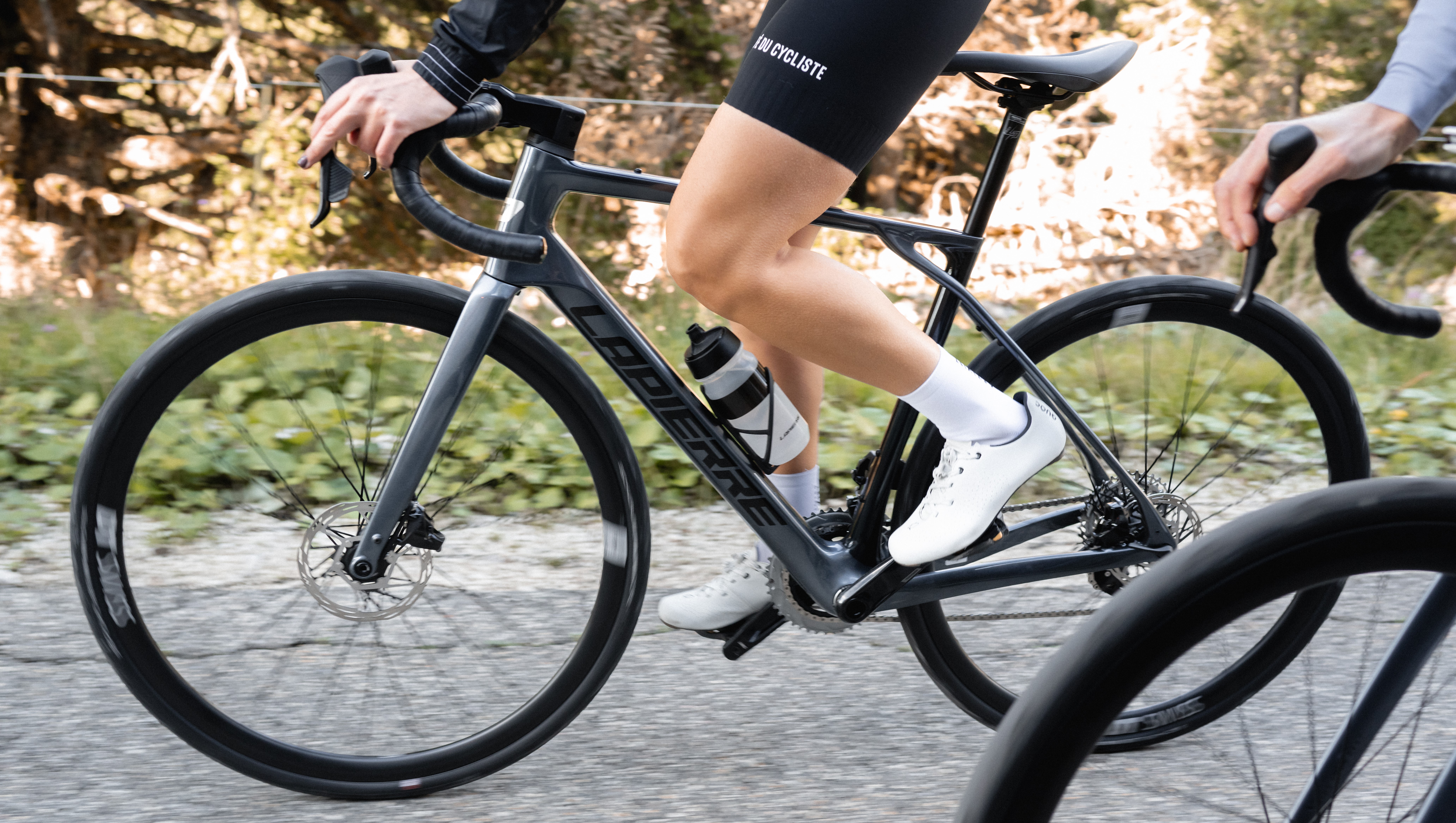
Lapierre says that its all-new fourth generation Pulsium endurance bike is designed to be more sporty and race-oriented than its predecessor. The new Pulsium has a more aggressive geometry and is claimed to be lighter and more aero, as well as adding greater vertical compliance.
Ever since the first generation in 2012, the Pulsium has incorporated Lapierre’s triangulated seatpost cluster, in which the seatstays connect to the top tube rather than the seat tube, with the aim of increasing compliance.
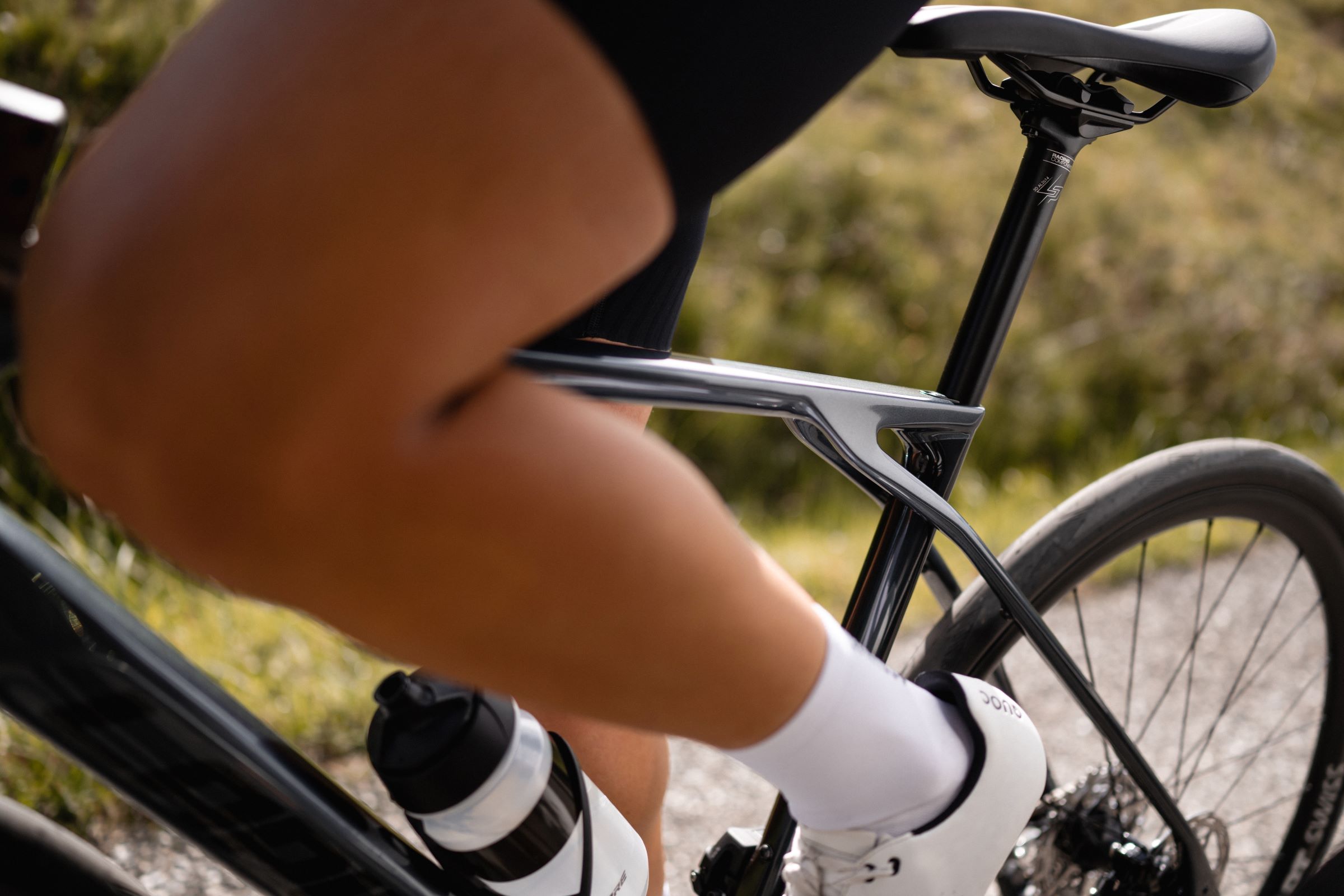
In the previous generations, the seatstays incorporated an elastomer block, but in the new bike, the SAT elastomer is absent. Instead, the design mirrors the 3D Tubular design also seen in the latest update of the Xelius DRS lightweight/aero bike, which was launched last month and which merges Lapierre's Xelius lightweight and Aircode aero platforms.
There’s a marked kink towards the top of the Pulsium’s seatstays though, which is absent in the Xelius, although it also features in the unreleased Lapierre gravel bike which was among the new tech that we spotted at the Gravel World Championships.
Lapierre says that this design feature, along with flex zones in the stays and a round seat tube, help to increase vertical compliance and reduce transmission of low frequency vibrations to the rider.
Added aero
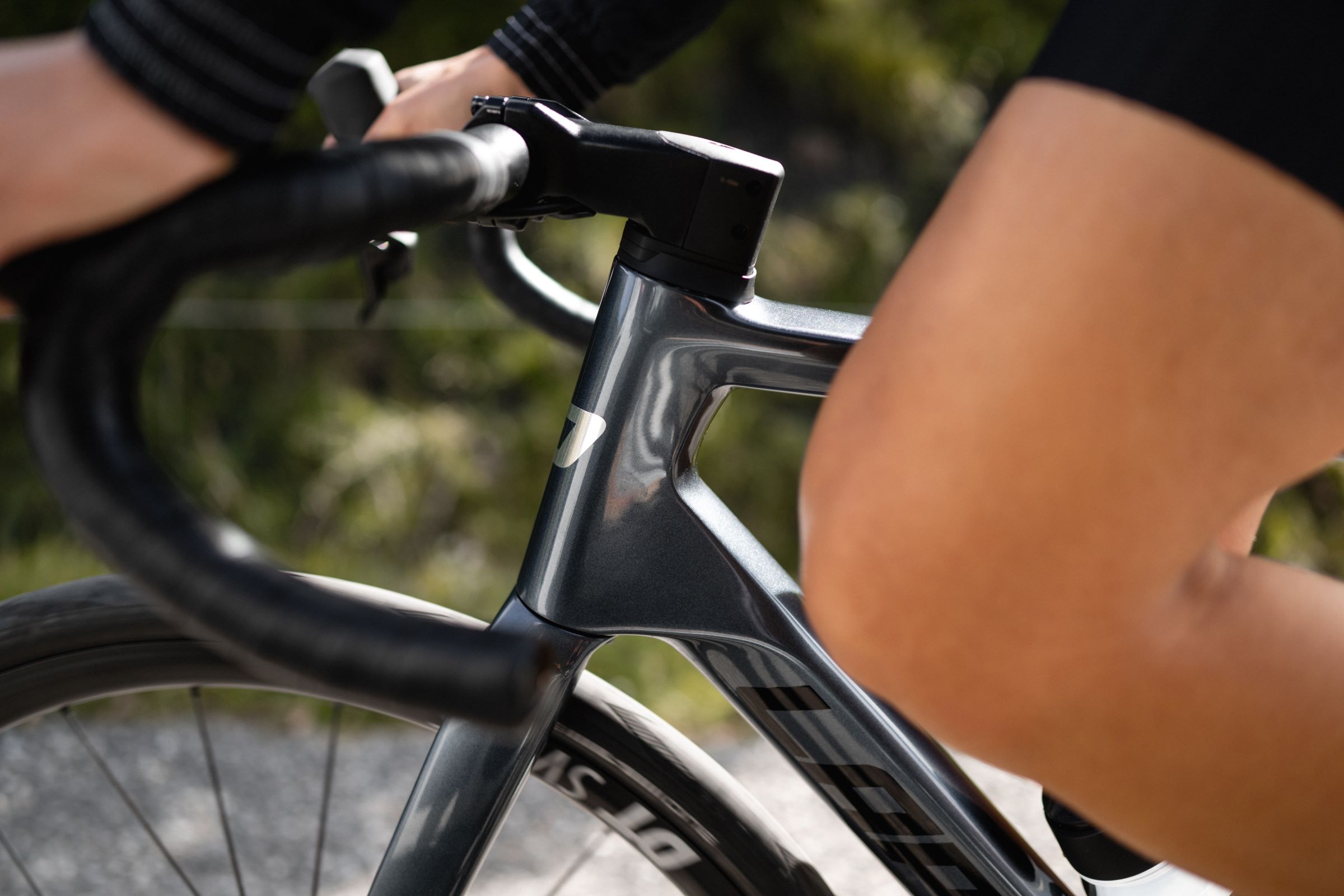
Lapierre says that the 3D Tubular seatstay design is both more aero and lighter than its previous design. It’s also borrowed other tube profiles from the new Xelius at the fork crown and head tube, for better front-end aerodynamics.
The new Pulsium has been tested in the wind tunnel, with Lapierre saying that it’s five percent more aero than its predecessor. This is claimed to save 6.1 watts at 50km/h. At a more endurance-friendly 35km/h, the equivalent figures are 2.1 watts saved or five seconds over 10km.
Small savings, but savings nonetheless.
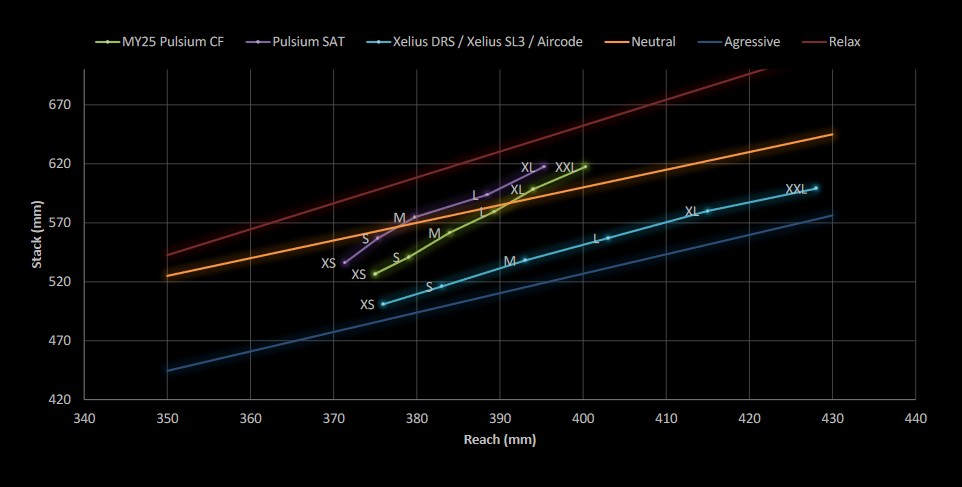
Lapierre has tweaked the Pulsium’s geometry, with a lower stack and longer reach, which should also improve the aerodynamics of bike-plus-rider. As with the Xelius, it’s added a sixth XXL size to cater for taller riders.
The head tube has been shortened by 20mm across the range and the seat tube is also shorter and 0.5 degrees more upright. The chainstay length of the new bike is 415mm, offering compatibility with 38mm tyres, although Lapierre fits 32mm tyres from either Continental or Schwalbe.
100g lighter
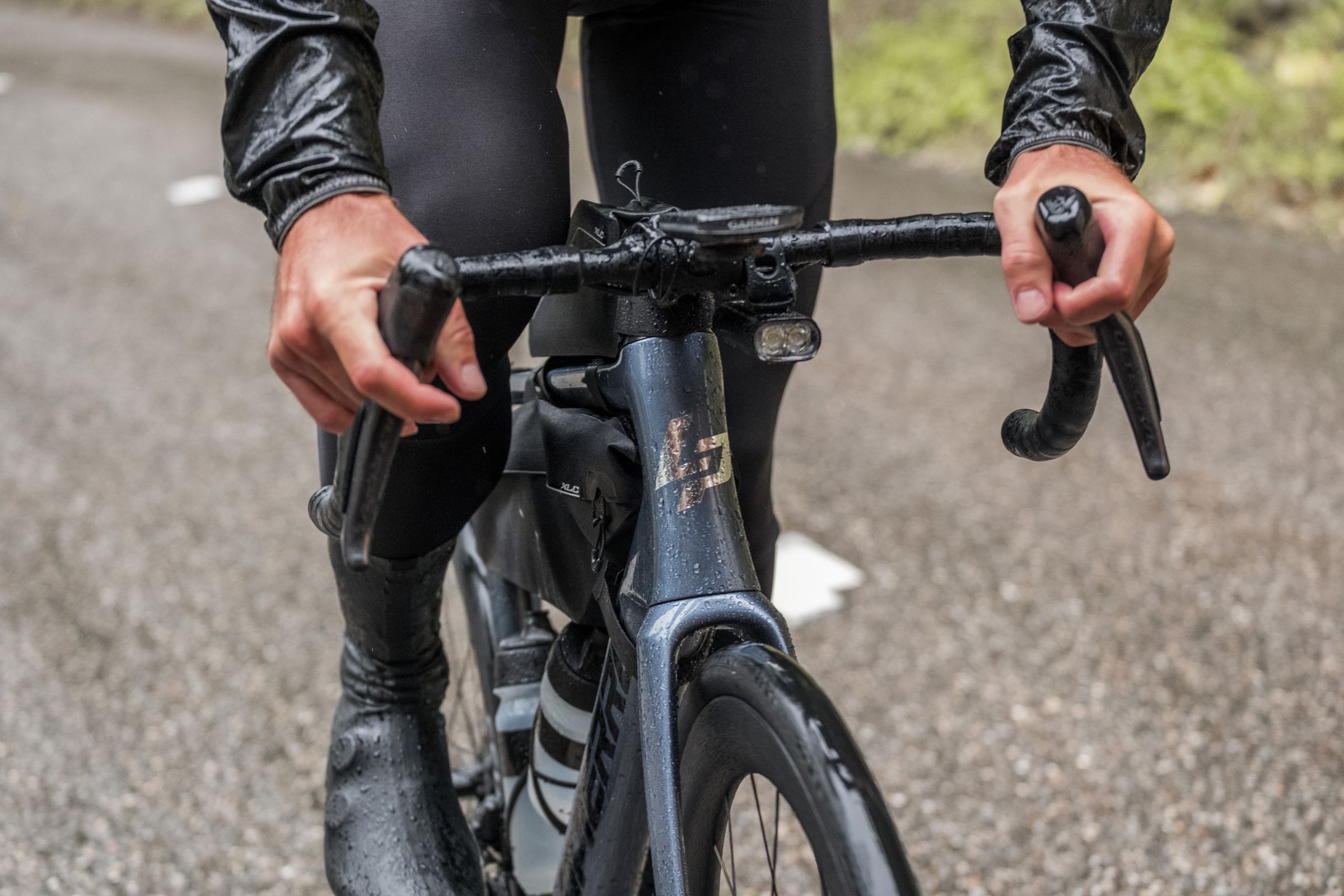
The Pulsium’s frame is made from UD SL standard modulus carbon fibre and Lapierre claims a 992g raw frame weight in size M, which is 100g lighter than the previous generation bike. The fork is claimed to add 380g.
As you’d expect from a modern endurance bike, there are mounts for mudguards, as well as top tube bag mounting points.
- Buyer's guide: Best endurance road bikes
There’s a new alloy stem design, which allows semi-integrated cabling. It’s paired with new bars with a 10 degree flare, which switch from alloy to carbon in the top spec bike, with the carbon bars having a weight claimed at 240g in 40cm width.
The top spec Pulsium 8.0 bike is also equipped with DT Swiss ERC 1600 carbon wheels, which are exclusive to Lapierre and fitted to some Xelius models too. They have a 45mm depth, 22mm internal width and roll on DT 350 Spline hubs. Lapierre fits DT Swiss alloy wheels to most lower specs.
Range line-up
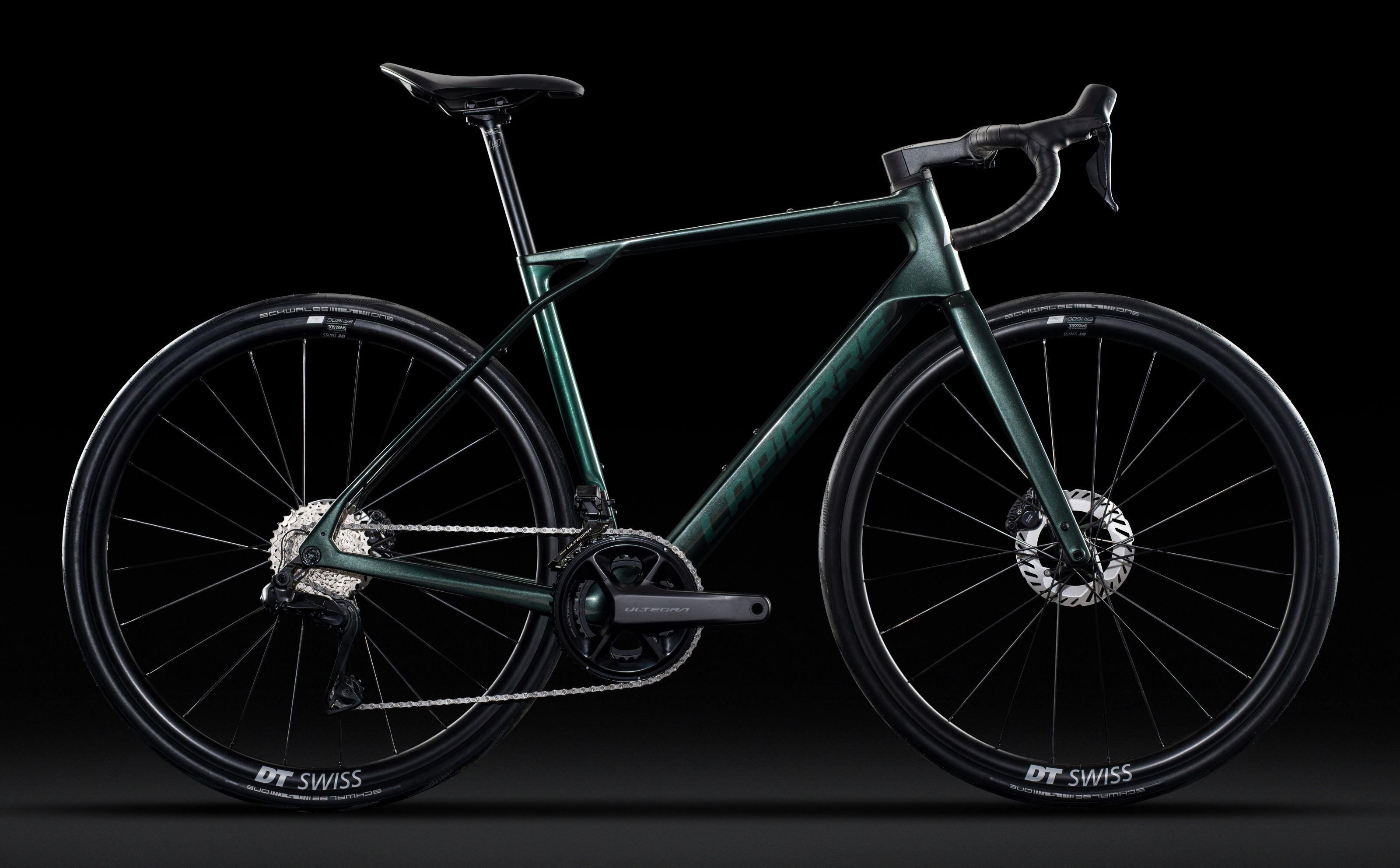
The full Pulsium range consists of five models (two with multiple colour options), four of which have electronic road groupsets.
The top spec is the Pulsium 8.0, priced at £5,699 / €5,699. It’s equipped with a Shimano Ultegra Di2 groupset (50/34 x 11-34t), carbon aero bars and DT Swiss ERC 1600 Spline carbon wheels with Continental GP 5000 S TR 32mm tyres. Its claimed weight is 8.3kg.
The Pulsium 7.0, priced at £4,399 / €4,399, also has a Shimano Ultegra groupset, but with alloy bars and DT Swiss E1600 Spline alloy wheels with Schwalbe One Perf 32mm tyres. Weight is stated as 8.5kg.
The Pulsium 6.0 is available either with SRAM Rival AXS, priced at €3,899 or Shimano 105 Di2, priced at £3,599 / €3,399. Both specs have the same DT Swiss E1600 Spine wheels and 32mm Schwalbe tyres. Claimed weights are 8.6kg with Rival and 8.8kg with 105 Di2.
Finally, the Pulsium 5.0, priced at £2,899 / €2,599, has a Shimano 105 mechanical groupset and Lapierre alloy wheels with Conti UltraSport III SL 32mm tyres. There’s no weight figure given.
UK riders get the choice of the full range, with the exception of the SRAM Rival equipped Pulsium 6.0.







